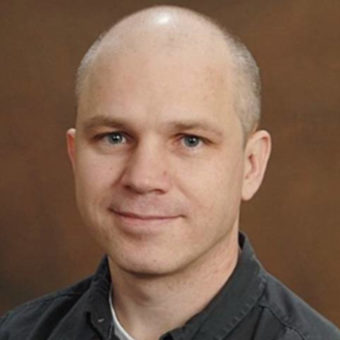Brandon Westover, MD, PhD, is a leader in the fields of critical care electroencephalography (EEG) and biomedical signal processing. The goal of Dr. Westover’s laboratory is to help intensive care unit (ICU) patients leave the hospital with better neurological outcomes. ICU patients are at risk for a host of neurological complications which could be prevented with better brain monitoring technology, including delirium, anoxic brain injury, over- and under-sedation, occult pain and seizures. With help from the Rappaport Family Fund, Dr. Westover’s research is pursuing its goal using two parallel strategies.
First, Dr. Westover’s group is developing computer algorithms for monitoring brain activity in patients at risk for neurological deterioration. One of the most exciting achievements to date is the development of a closed-loop anesthesia delivery (CLAD) system that is able to monitor and safely deliver anesthetic medications automatically to patients suffering from refractory seizures. In animal testing, the group’s CLAD system achieves tighter control than is possible with current clinical practices. They are applying for FDA approval to test this technology in humans suffering from refractory seizures. Another project in progress is the development of an EEG-based system for patients with ruptured brain aneurysms to warn physicians when brain activity “slows down,” indicating a high risk for developing a stroke. Dr. Westover’s laboratory is leading an international group to gather the EEG and clinical data needed to develop and rigorously validate this technology.
Second, Dr. Westover’s group is developing “Big Data” analytics to extract new medical knowledge from the rich and massive clinical data archives of the MGH ICU and Epilepsy Units. Efforts are underway to robustly capture, organize, and mine the medical data from the more than 5,000 patients cared for annually in MGH intensive care units and for the more than 10,000 patients with seizures and epilepsy evaluated at MGH. Early work is promising and suggests new ways of automatically identifying patients at the highest risk for delirium, seizures, and epilepsy. Dr. Westover and his group hope to rapidly expand on this work to develop new warning and decision-support systems for critical care medicine, and to accelerate discoveries in epilepsy.
The goal of Dr. Westover’s laboratory is to help intensive care unit (ICU) patients leave the hospital with better neurological outcomes. ICU patients are at risk for a host of neurological complications which could be prevented with better brain monitoring technology, including delirium, anoxic brain injury, over- and under-sedation, occult pain and seizures. With help from the Rappaport Family Fund, Dr. Westover’s research is pursuing its goal using two parallel strategies.
